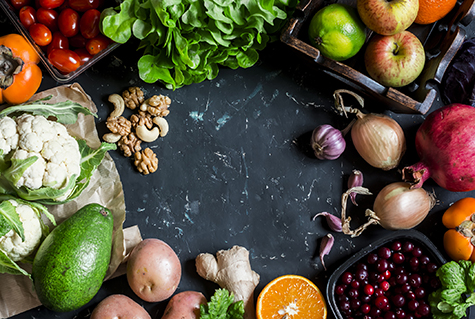Top 50 Foods for Longevity

Want to live a longer, healthier life? Of course! People in every culture seek the fountain of
youth but in fact it very well may be sitting in your kitchen cabinet. Healthy eating plays a role in living longer and supporting your cells as you age. Healthy aging relies on foods that support many systems including brain and heart health. These foods often contain antioxidants and anti-inflammatory properties, supporting optimal health on a cellular level. Here is the ultimate Foodtrients list of the top 50 foods for longevity with a 360-degree view of the many factors that contribute to aging with health and grace.
1. Almonds
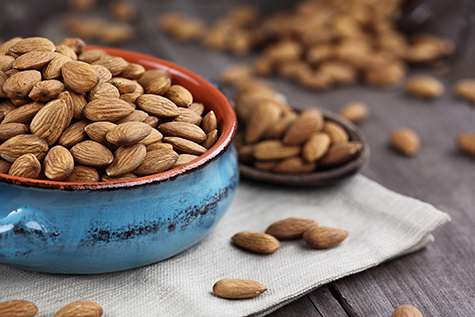
In a huge study on nut consumption and mortality including 3,038,853 person-years of follow-up, nut consumption was inversely associated with total mortality among both women and men after adjustment for other risk factors. The best news is that the more often a person ate nuts, the better their protection – the people who ate nuts 7 days per week fared better than those with fewer days. Grab a small handful each day and use caution with portion size because almonds, like all nuts, are dense in calories.
2. Apples
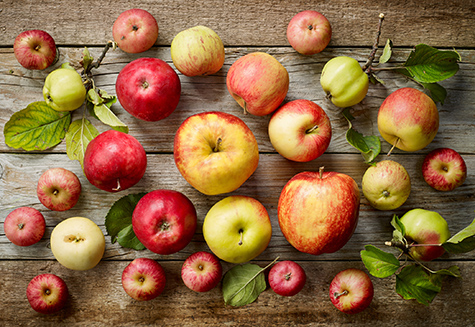
Don’t be fooled by the simplicity of apples; they are anti-aging powerhouses. Everyone’s favorite fruit contains the powerful antioxidant vitamin C which, in some studies, is low in people suffering with Alzheimer’s Disease. Apples also contain 5 grams of fiber per medium-sized fruit to help support cardiovascular health through decreased total and LDL/bad cholesterol. Include an apple for your snack for a burst of the potent anti-cancer antioxidant quercetin.
3. Anchovies
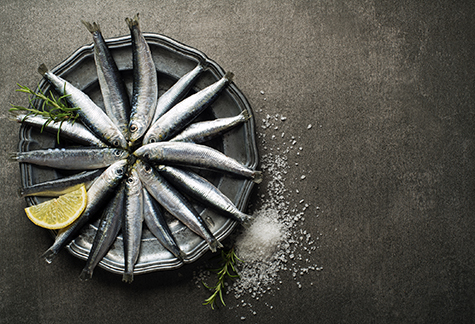
Some people love anchovies more than others but they may be worth your consideration if you’re interested in healthy aging. A large study of over 600 people found that people with coronary artery disease who had higher levels of omega 3’s EPA and DHA experienced significantly less telomere shortening than those with lower levels. Telomeres are one measure that has been linked to the aging process and can be measured. Anchovies are rich in both minerals and healthy omega-3s fats so enjoy them as a snack on whole grain crackers or in a salad for healthy aging.
4. Avocado
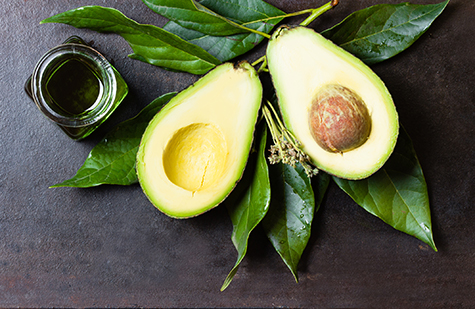
This healthy fat-packed fruit is full of unsaturated fatty acids combined with antioxidants like vitamins E and C, potassium and B-vitamins like vitamins B5, folic acid and B6. Avocados support heart health with research showing a reduced risk of heart disease, lower LDL/bad cholesterol levels, and a decrease in oxidative stress in the bloodstream. Include avocados in the diet your whole life through.
5. Basil
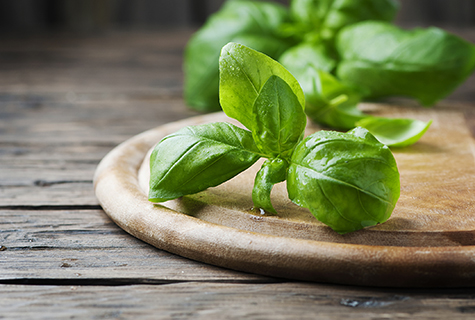
This common herb has some important anti-aging benefits. Studies show that basil contains antioxidants that protect the skin from UV ray damage. Research has been done specifically on anti-aging effects in the skin and the use of fresh basil extract with positive outcomes. Antioxidants about including phenolic compounds and flavonoids so toss it in your next salad, put it on a sandwich, or even blend it into a smoothie for a fresh, healthy boost.
6. Beets
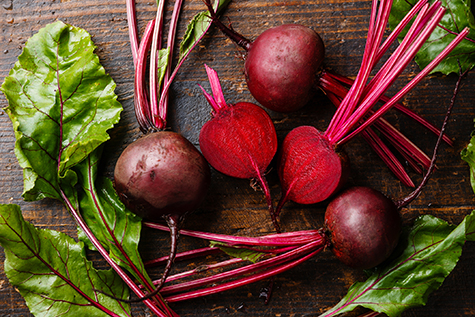
Simple beets contain some critical compounds necessary for longevity. Beets also contain unique antioxidant phytonutrients called betalains, which have shown anti-cancer and anti-inflammatory effects. Beets are also a source of choline which studies have shown may increase blood flow to the brain, boosting performance. Bonus: beet greens are rich in the B-vitamin riboflavin as well as a collection of minerals so use both the tops and bottoms to get all the healthy aging benefits you can from beets.
7. Black beans
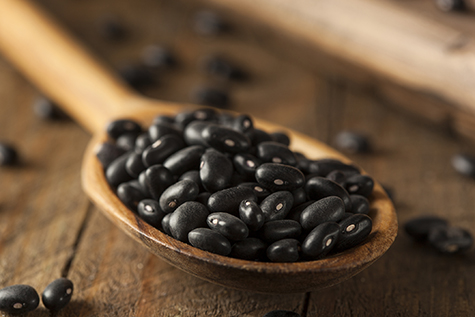
All beans contain a high level of folate which is good for the brain, cognition, and memory, especially as people age. Black beans contain unique antioxidants such as anthocyanins including petunidin, delphinidin, and malvidin which may decrease inflammation. Full of heart healthy potassium, magnesium, iron, zinc, and protein, studies show that black beans can help lower blood pressure. Serve black beans with tacos, on salads, in soups or even in brownies!
8. Blueberries
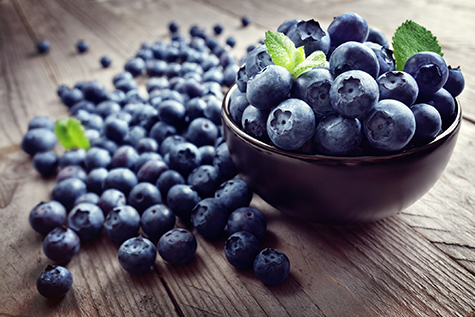
Blueberries are absolutely packed with important anti-aging nutrients like vitamin C and folate. Animal studies have found that the antioxidants in blueberries specifically increased lifespan and slowed the aging process. Though more studies are needed on human subjects, including these sweet berries in your diet may be an important factor to aging healthfully – especially for the skin and brain.
9. Broccoli
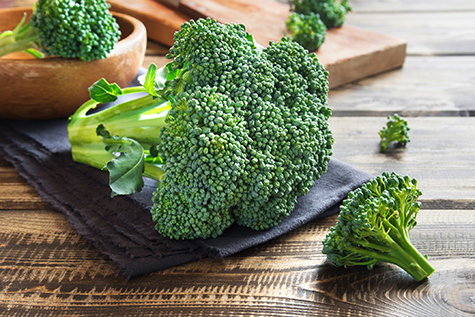
Broccoli, a cruciferous veggie, contains many critical nutrients for healthy aging. Eating cruciferous vegetables is associated with health benefits against cancer, for health, diabetes, asthma and Alzheimer’s disease. In fact, people who eat plenty of broccoli perform better on memory tests in studies. Broccoli contains liver detoxifying compounds called glucosinolates that contribute to this benefit. ‘Eat your broccoli’ is sage advice.
10. Brussels sprouts
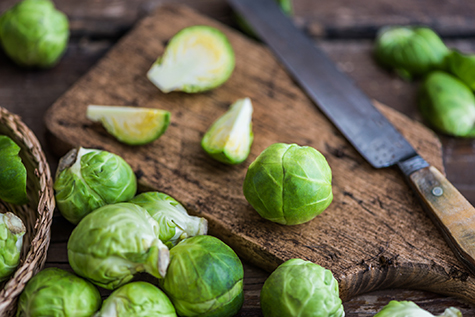
In the same cruciferous veggie family as broccoli, these tiny cabbages contains special health promoting compounds called glucosinolates and isothiocyanates which have both been objects of research, particularly for their anti-cancer properties. Brussels sprouts also contain unique anti-inflammatory and free-radical scavenging metabolites supportive of detoxification that support aging with grace. Chop in half and roast in the oven or shred and add to a salad.
11. Bran
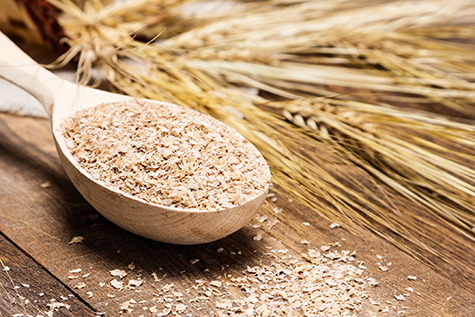
Whole grains including fiber-rich bran are known as health foods especially because of their vitamin, mineral and fiber content. An analysis of a collection studies found that whole grain intake is associated with a reduced risk of coronary heart, cardiovascular, respiratory, and infectious disease as well as diabetes and mortality from all causes. Add wheat bran to muffins and rolls or sprinkle on cereal to increase your intake and gain the benefit of this very healthy food.
12. Carrots
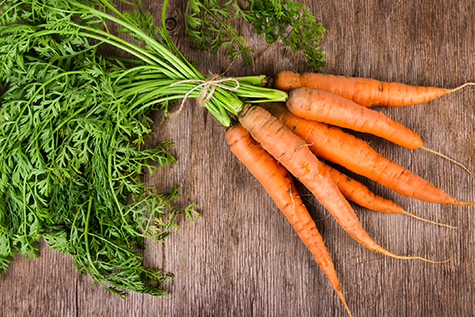
Enjoy both carrots and carrot juice to support brain health and memory as you age. Carrots are rich sources of antioxidants like beta-carotene and vitamin A as well as brain boosting vitamin C and stress calming B-vitamins. Carrots also help keep the immune system running smoothly which is a critical part of longevity to avoid illness that could threaten overall health. In studies, dark orange/yellow colored vegetables have emerged as among the most protective against cardiovascular disease.
13. Cashews
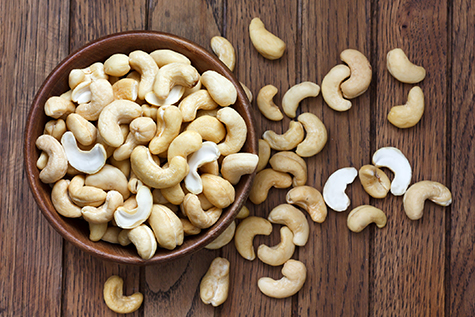
Cashews often come in salty mixed nut containers but if you can get them raw or roasted as a snack, you may be doing your heart a favor. A study on nut intake and chronic disease as well as mortality rates found that people who ate tree nuts like cashews daily were less likely to die of cancer, heart disease and respiratory disease, too. In fact, the people in the study who ate nuts daily were 20% less likely to have died during the entire course of the study than people who didn’t eat nuts.
14. Cauliflower
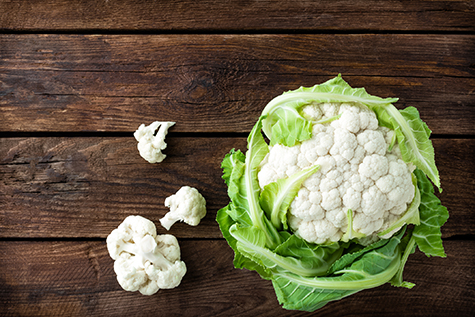
A current hot food trend, cruciferous cauliflower is also a longevity powerhouse. Eating crucifers is associated with health benefits that protect against cancer, heart health, diabetes, asthma and Alzheimer’s disease. In a study on cognitive decline in aging women in the Annals of Neurology found that women in the highest quintile of cruciferousvegetable intakeexperienced memory decline at a slower rate than all other study groups. Include it as “rice”, roasted, pureed, or even made into pizza crust for a low-carb option.
15. Cherries
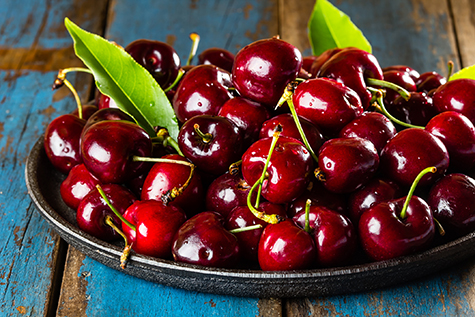
Studies have found that dietary intake of the antioxidants in cherries, called anthocyanins, are associated with increased neuronal signaling in brain centers, mediating memoryfunction which boosts healthy aging. Beyond brain health, cherries offer a variety of vitamins and minerals for optimal nutrition status and this fruit is packed with antioxidants called polyphenols which create their vibrant color and may support the health of blood vessels. Fresh or frozen, include cherries in your diet daily if you can.
16. Chia seeds
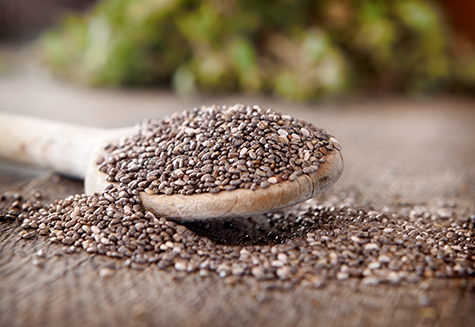
A rich source of both omega 3 fatty acids as well as fiber (11 grams in 2 Tablespoons!), tiny chia seeds boost longevity in a variety of ways. From lowering cholesterol, balancing blood sugar, promoting heart health or calming inflammation, chia seeds do it all. Sprinkle them on salad or into cereal for a crunch or stir them into a liquid where they expand and incorporate into the mixture.
17. Cocoa
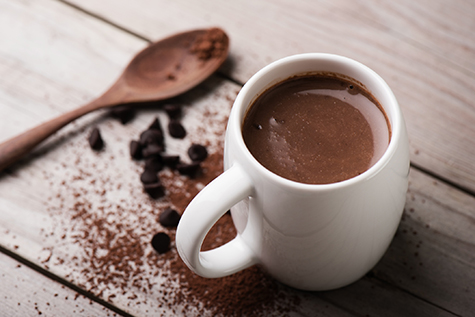
Cocoa contains more phenolic antioxidants than most foods. Antioxidant flavonoids including catechin, epicatechin, and procyanidins are dense in this bitter powder. While most chocolate we eat has sugar and fat added to create it’s creamy, sweet flavor, those ingredients can work against longevity and health. Instead, bitter baking cocoa powder contains the antioxidants without all the added negatives. Cocoa can protect nerves from injury and inflammation, protect the skin from UV radiation damage and have beneficial effects on satiety, cognitive function, and mood.
18. Cranberries
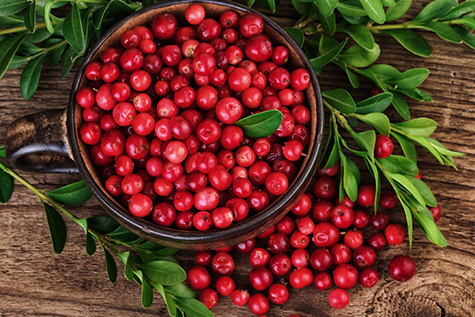
Cranberries have been studied for longevity with incredibly positive results. A 2014 study presented in the Journal of Experimental Gerontology found that young fruit flies given cranberry extract lived 25% longer than flies given only sugar. When they gave the extract to middle- and old-age flies, their lifespan extended by 30%! Cranberries are high in certain antioxidants including vitamin C and may also inhibit the growth of several cancer cell lines such as breast cancer in the lab setting.
19. Garbanzo Beans
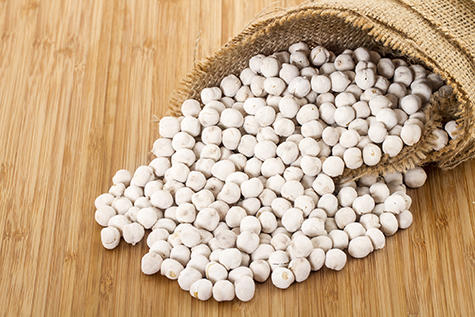
Studies on longevity around the world found one thing in common between many different pockets of centenarians – beans. Garbanzo beans, also called chickpeas, are versatile and packed with critical nutrients. These little beans contain antioxidants including vitamin C, vitamin E, and beta-carotene but they are also uniquely rich in phytonutrients like flavonoids quercetin, kaempferol and phenolic acids ferulic acid, chlorogenic acid, caffeic acid, and vanillic acid. Toss them on a salad, in a sandwich or in a soup for a well-rounded dose of health promoting nutrients and fiber.
20. Garlic
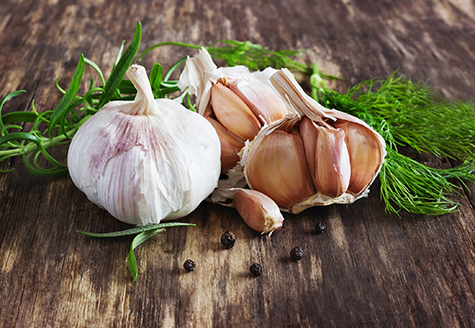
Everyone’s favorite herb, garlic, works to support the cardiovascular system as well as prevent diabetes – critical diseases to control for optimal longevity. Studies have shown that it can reduce your risk of heart attack and stroke. Garlic is an allium vegetable with sulfur-containing compounds that act as antioxidants and offer beneficial effects to memory in studies. Add garlic to sauces, salad dressing, spread it on veggie or bread or roast it up to serve with dinner tonight for a flavorful boost to longevity.
21. Ginger
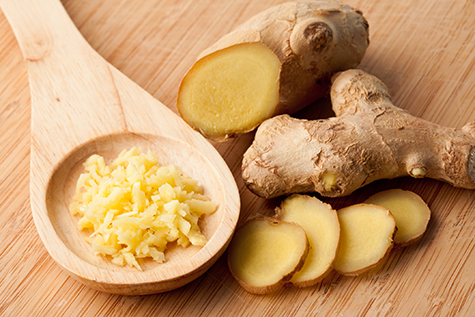
A seriously healthy spice, ginger is a strong anti-inflammatory because of unique antioxidants like gingerol and other phenolic compounds that work to calm the body. Using ginger as a spice can help cut down on other less healthy flavors like salt in foods. Include ginger in both sweet and savory dishes as well as in dressings and sauces for a delicious taste as well as health benefits – and skip any varieties that are coated in sugar.
22. Green tea
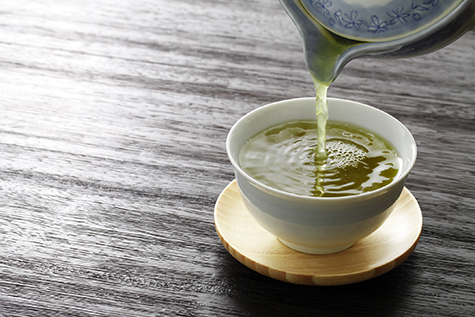
Green tea has many proven benefits to health and among them is longevity. The Ohsaki National Health Insurance Cohort Study, a population-based, prospective cohort study with 40,530 participants found that green tea consumption was inversely associated with mortality due to all causes and to cardiovascular disease. Note that these benefits were even stronger in women than they were in men. The study ranged from those who drank 1-5 cups per day and it appears that more is better in this case. Packed full of antioxidants, namely epigallocatechin-3-gallate (EGCg) a potent polyphenol, green tea is a friend to healthy aging.
23. Grapes
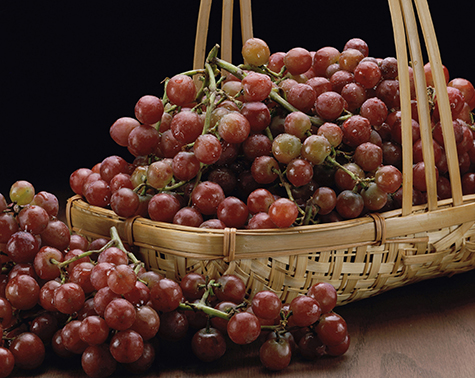
Grapes are known for their anti-aging antioxidant compounds – specifically resveratrol. Though wine gets all the credit here, purple grapes are also a great source of this antioxidant. The skin of the grape contains the most resveratrol and red and purple grapes contain significantly more of this benefit than green grapes. Research points to resveratrol’s ability to slow the growth of cancer cells and inhibit the formation of tumors in lymphatic, liver, stomach and breast cells in the lab setting. Grapes are a perfect snack if you’re looking for a food that boosts longevity.
24. Hemp Seeds
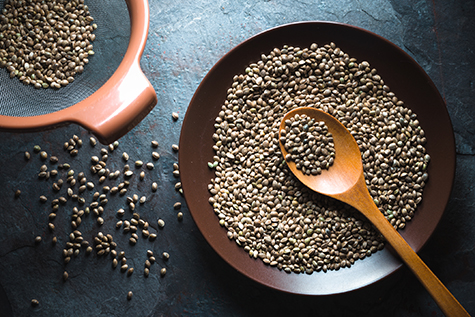
Move over chia seeds – hemp seeds also have a lot of nutritional benefit to offer and they could also be a key to longevity. Tiny, nutty hemp seeds are perfect for sprinkling on cereal, oats or adding to granola and are a natural source of essential anti-inflammatory omega-3 fatty acids. Aside from calming inflammation in the body, omega 3 fatty acids are critical for brain health and could be one of the keys to longevity.
25. Honeydew
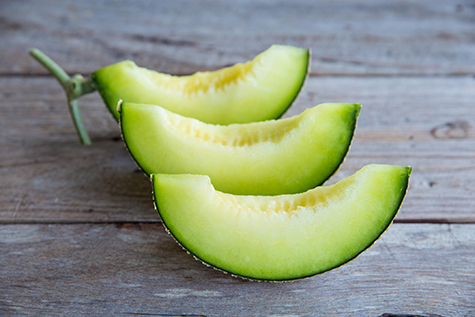
All melons are nutritional powerhouses, naturally lacking fat, sodium or cholesterol yet packed with vitamins, minerals, antioxidants and fiber. Sweet, green honeydew melon makes a healthy snack that could in fact play a role in longevity as well. Enjoy this melon chopped up for breakfast or as a snack for a dose of immune boosting vitamin C or B-vitamins that support the cardiovascular and neurological systems plus a fantastic source of hydration which sometimes declines with age.
26. Horseradish
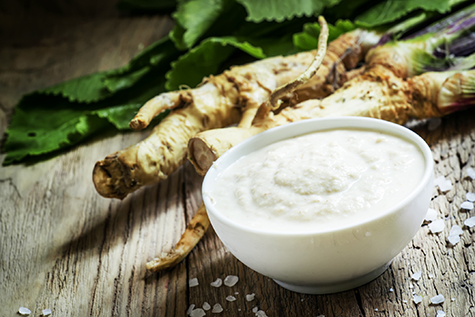
This very spicy root vegetable, closely related to wasabi, contains a potent antioxidant called allylisothiocyanate which has been shown to inhibit the growth of unhealthy bacteria and fungi. It has also shown some incredible free-radical scavenging and anti-cancer properties which supports healthy aging and avoidance of disease. If you can take the heat, grate horseradish onto foods as a garnish or include it in sauces or salad dressings for a bit of zest.
27. Lentils
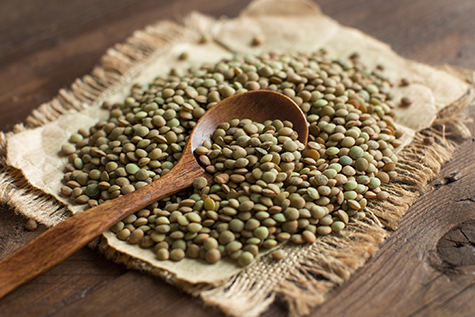
Cardiovascular disease is routinely at the top of the #1 killers list so including heart healthy foods like legumes is key to support this critical part of health. Legumes like lentils are rich sources of fiber which helps regulate cholesterol levels and support healthy digestion. They also contain B-vitamins for neurological support, critical as we age. In fact, one cup of lentils provides the majority of your daily B-vitamin folate needs at 90%. Include lentils on salads, in soups and pureed into a dip.
28. Lettuce
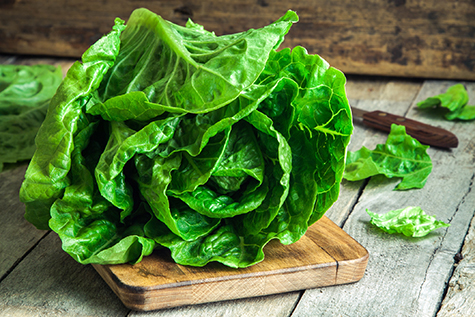
Romaine, red, butter or even Iceberg, lettuce has been linked to longevity in humans. The huge Seventh Day Adventist Study including over 27 thousand participants found that people who eat green salads experience significantly less all-cause mortality even after adjusted for sex smoking, age, and history of chronic disease. So, eat that salad!
29. Kale
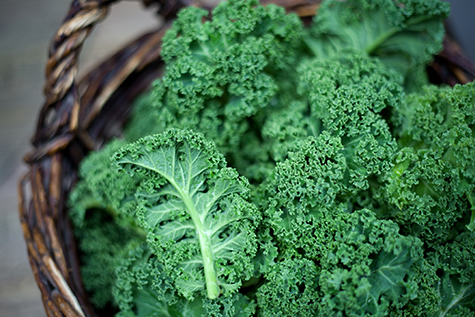
Just like the research on eating green salad where people experience significantly less all-cause mortality than those who don’t eat them, this dark leafy green has benefits on top of that. Kale is one of the richest sources of critical eye-health antioxidants lutein and zeaxanthin to support longevity of healthy vision. One cup provides nearly all your vitamin C needs at 70% and all B-vitamins (aside from B-12). Choose the variety you enjoy the most – curly, baby or dinosaur.
30. Mesclun
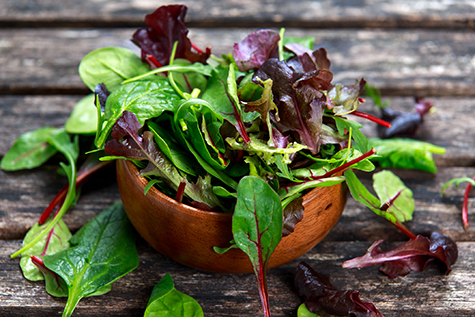
A delicate mix of leafy lettuce and baby greens, mesclun makes the perfect green salad. Toss on other anti-aging options like carrots, beet, mushrooms, olives, nuts and onions and you have a longevity powerhouse. Green salads have been linked to longevity in humans. Studies show that people who eat green salads experience significantly less all-cause mortality. Experiment with your favorite kind of green to reap the benefits.
31. Miso
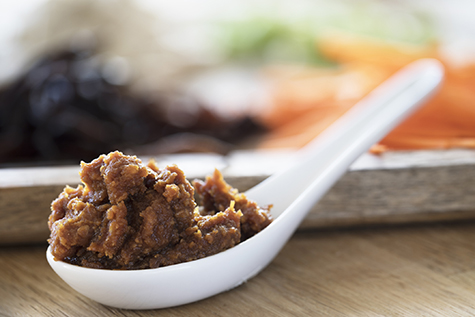
In longevity studies done on populations in Okinawa, a place where people live longer than almost anywhere else in the world, miso is part of the daily diet. This fermented soybean paste is often consumed in a soup along with other healthy foods like sweet potato and seaweed. This population eats a variety of soy foods including tofu which are rich in antioxidants. One benefit of a preparation like miso is the presence of gut health promoting probiotics.
32. Mushrooms
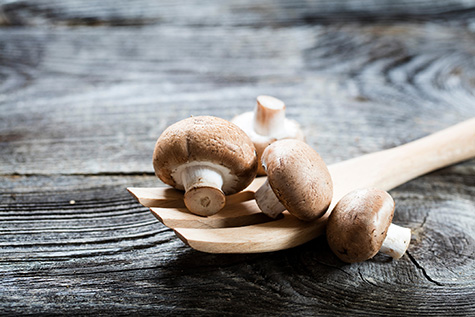
Mushrooms contain some very special compounds for longevity, specifically beta-glucans, a type of polysaccharide or carbohydrate. Studies have indicated that beta-glucans support the skin by regenerating collagen-producing cells and protecting against environmental damage. Beta-glucas are also known for their immune support and anti-cancer activity. Although evidence is still preliminary, accumulating research suggests that culinary-medicinal mushrooms play an important role in the prevention of age-associated neurological dysfunctions such as Alzheimer’s and Parkinson’s diseases.
33. Olives
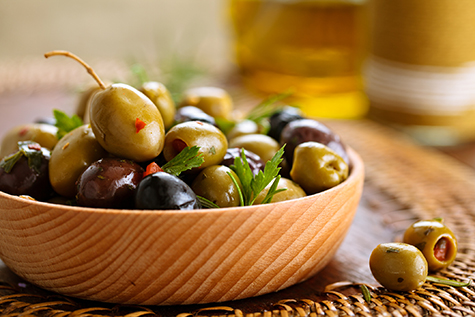
A perfect savory snack, olives have a lot to offer your health. Rich in unsaturated fatty acids, olives support the cardiovascular system and are a staple of the healthy Mediterranean style diet. They contain antioxidant polyphenols and contain a high level of monounsaturated fat which protects nerve cells in the brain and has been found to improve the brain’s neuroplasticity (flexibility). Antioxidants in olives have been shown to reverse age- and disease-related learning and memory deficits.
34. Onion
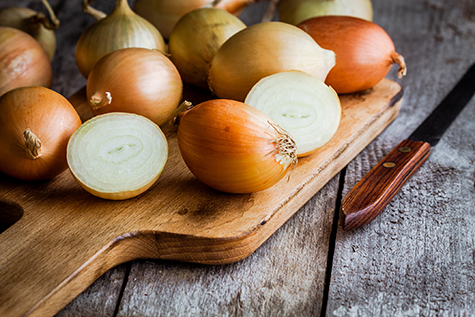
Sulfur-containing compounds in all onions act as antioxidants and offer support to memory in studies. Another allium vegetable, like garlic, onions are packed with the antioxidant quercetin which studies show support detoxification and cardiovascular health for optimal aging and longevity. Consume any type of onion (yellow, red, sweet) any way you like them – cooked or raw as part of a sauce, salad or sandwich.
35. Peanuts
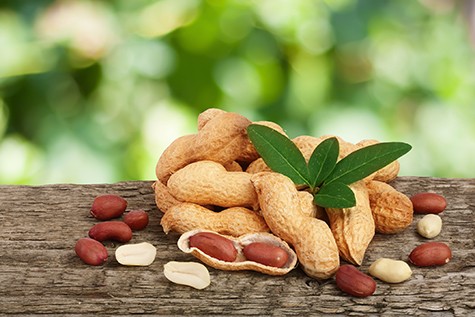
Peanuts contain among the highest antioxidant content of any nut including the famous anti-aging compound resveratrol. One large human study found that those who ate one serving of peanuts (about 28 peanuts) two or more times per week, lowered their risk for cardiovascular and coronary artery diseases by 13 – 23%. People who ate five or more servings per week lowered their risk for both by 14 – 20%. Eat peanuts every day if you’d like but read your labels to ensure you’re not getting added sugar, salt or oil in the variety you choose.
36. Parsley
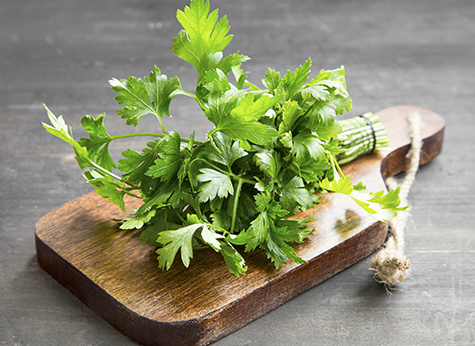
An underestimated herb, potent parsley contains amazing anti-aging properties. It is packed with powerful antioxidants vitamin C and flavonoids like luteolin. Aside from being a precursor to collagen which increases the tightness and elasticity of the skin, vitamin C has been observed to be a potent scavengers of superoxide radicals, protecting cells from DNA damage. Chop parsley up into a salad or sprinkle it generously on a soup or stew this week.
37. Purple potatoes
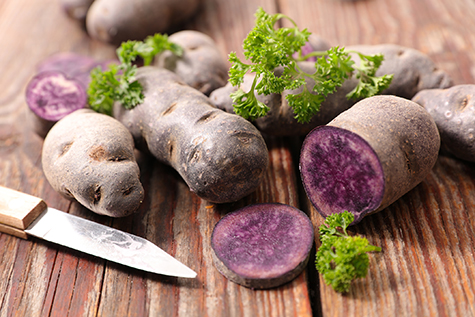
Potatoes are a healthy food due to their vitamin and mineral content but some varieties take health to the next level by offering a rich source of antioxidants. Purple potatoes in particular are a rich source of anthocyanins – antioxidants that are found in purple and red colored foods. Studies indicate that these compounds may protect from liver injury and scavenge damaging free radicals in the body.
38. Quinoa
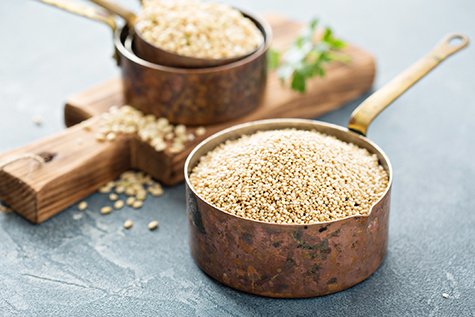
This nutty, gluten-free whole grain is rich in vitamins, minerals, and antioxidants including several members of the vitamin E tocopherol family for skin and neurological support. Some studies have shown that patients with Alzheimer’s Disease suffer from low levels of vitamin E so whole grains like quinoa are important to include in the diet, especially for healthy aging. Bonus: quinoa is among the highest fiber whole grains at nearly 5 grams per cup for heart and gut health with aging.
39. Red Wine

While too much alcohol can work against longevity, a moderate amount may equal a longer life. In fact, a study presented in the Journal of Epidemiology and Community Health suggest that drinking up to half a glass of wine a day may boost life expectancy by five years. If you drink alcohol, a little red wine may be a heart-healthy choice. Resveratrol and catechins, two antioxidants in red wine, have been shown in some studies to protect artery walls. Alcohol can also boost HDL, the good cholesterol.
40. Raspberries
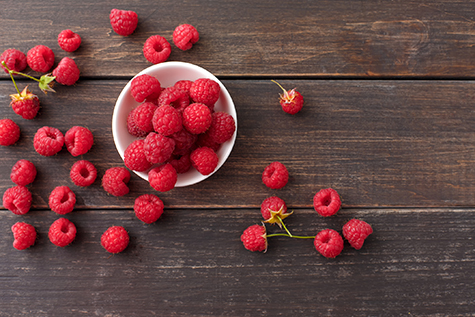
Raspberries are rich in vitamin C for immune and skin support as well as a unique antioxidant called ellagic acid, a potent scavenger of free radicals that cells from DNA damage. They also contain special antioxidants in the anthocyanin family that help reduce inflammation and irritation in the body. Their combination of health supporting compounds make them important to include regularly in the diet and critical for an aging body.
41. Salmon
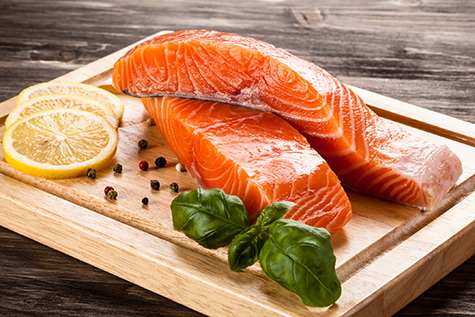
A large study of over 600 people found that people with coronary artery disease who had higher levels of omega 3’s EPA and DHA experienced significantly less telomere shortening than those with lower levels. Telomeres are one measure that has been linked to aging more or less quickly. Salmon is rich in both minerals and healthy omega-3s fats for optimal nutritoin. The American Heart Association recommends two servings of salmon per week.
42. Spinach
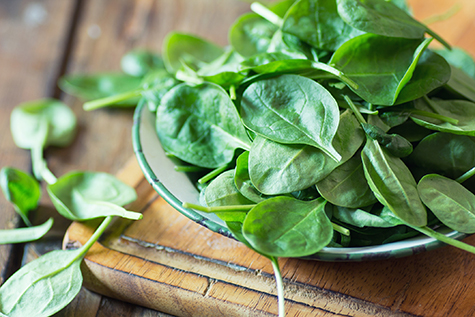
Eating dark leafy greens like spinach has been linked to longevity in humans. The huge Seventh Day Adventist Study including over 27 thousand participants found that people who eat green salads experience significantly less all-cause mortality – a longevity powerhouse. Add soft, sweet spinach to eggs, casseroles and stews or even blend it into a smoothie for a boost of nutrients including antioxidant vitamins C and E as well as lutein and zeaxanthin and zinc for the immune system.
43. Sprouts
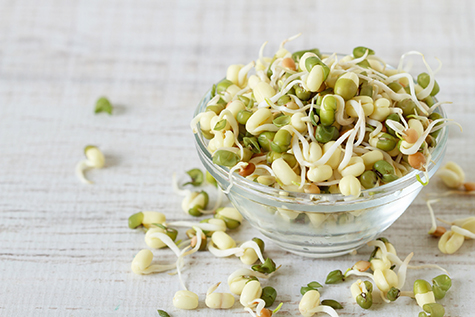
Delicate sprouts may include young alfalfa, soy, or bean sources. Sprouts are known for their dense nutritional value rich in vitamins and minerals your body needs to support cellular health and antioxidant support, especially as you age. Sprinkle sprouts on salads, sandwiches and bowls for a nutritional boost. Keep in mind that sprouts are a food borne illness risk due to the way they are grown and processed risk so those with weakened immune systems may need to avoid them.
44. Strawberry
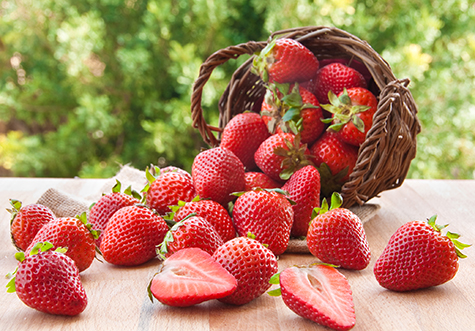
These delicious red berries actually contain more vitamin C per serving than some citrus and including them in the diet has been linked to heart health and a boost in immunity. A delicious and health promoting food, eat strawberries for their vitamins, minerals, antioxidants and fiber as well as their delicious, delicate flavor. Strawberries support aging because they contain potent free radical scavenging antioxidants.
45. Sunchoke
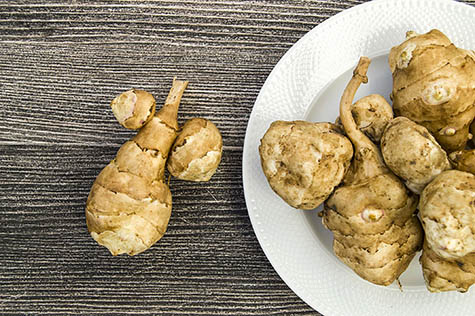
Also called Jerusalem Artichokes, these small root vegetables may offer aging brain health support through the gut. One of the richest sources of prebiotics, sunchokes offer a compound called oligosaccharides which the healthy bacteria in your lower gut loves to feed on. As more research pours out about the importance of the gut in overall health, feeding your good bacteria healthy food – and providing prebiotics, too – may very well be one of the answers to healthy aging.
46. Tofu
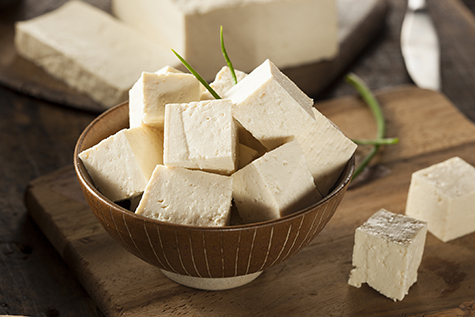
A famous plant-based protein, tofu contains compounds that help many systems in the body including minerals, fiber, antioxidants and polyunsaturated fats. Studies have found that genistein, an antioxidant called ‘isoflavone’ in soy helps to protect cells from DNA damage and could be a factor in promoting human longevity. Tofu is also a natural source of phosphatidylserine which may enhance neuronal membrane function and hence cognitive function as people age. It has also been linked to bone health in some population studies – so many things about tofu support healthy aging!
47. Tomatoes
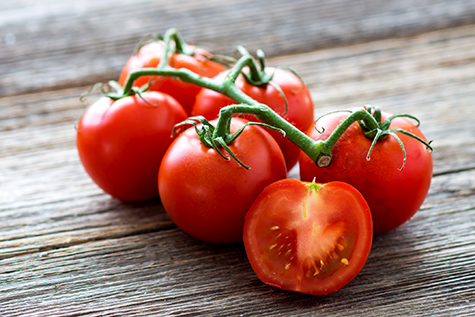
The presence of vibrant color in fruits and vegetables often indicate nourishing vitamins, minerals and antioxidants and that is certainly true for tomatoes. Tomatoes are packed with antioxidants vitamin C and lycopene to help quench free radicals in the brain and are rich in potassium for blood pressure control. Importantly, tomatoes are a good source of folate which reduces cardiovascular risk; just a six-ounce serving tomato juice offers 9% of your daily needs.
48. Turmeric
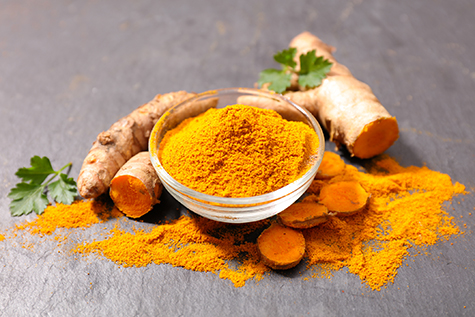
Famous as an anti-inflammatory, turmeric can be used in cooking to support healthy aging. It’s phenolic compound, curcumin, has proven longevity support mechanisms including antioxidant, anti‑inflammatory and anti-cancer activity. This spice may play a potential role in the prevention and treatment of Alzheimer’s Disease and has been shown to improve the cognitive functions in these patients. Be sure to include turmeric in your diet as a delicious spice as well as anti-aging benefits.
49. Walnuts
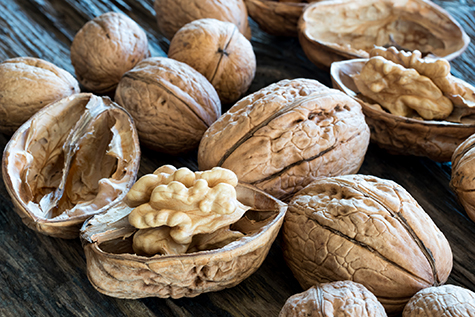
Studies have shown that eating just one serving of walnuts (14 halves) daily, five times per week, are associated with a 19% lower risk of cardiovascular disease and a 21% lower risk of coronary artery disease. Walnuts are packed with omega-3 fatty acids in the form of alpha-linolenic acid (ALA) which may suppress inflammation, important as a body ages.
50. Wheat berries
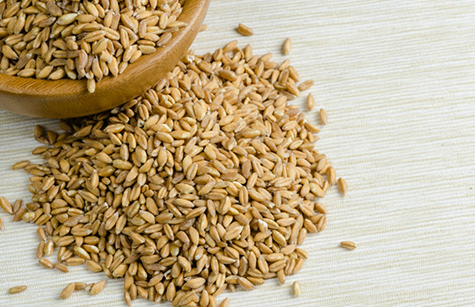
Studies show that whole grains including whole wheat, bran and wheat berries, are potent health foods especially because of their vitamin, mineral and fiber content. An analysis of a collection studies found that whole grain intake is associated with a reduced risk of coronary heart, cardiovascular, respiratory, and infectious disease as well as diabetes and mortality from all causes. Wheatberries are the whole wheat kernel – the bran, germ and endosperm. Serve them in a salad or side dish or get creative with them as a whole grain breakfast cereal.
What are your favorite foods for longevity and optimal aging? Let us know in the comments!
REFERENCES
Aune D, Keum N, Giovannucci E, Fadnes LT, Boffetta P, Greenwood DC, Tonstad S, Vatten LJ, Riboli E, Norat T. Whole grain consumption and risk of cardiovascular disease, cancer, and all cause and cause specific mortality: systematic review and dose-response meta-analysis of prospective studies. bmj. 2016 Jun 14;353:i2716.
Bao Y, Han J, Hu FB, Giovannucci EL, Stampfer MJ, Willett WC, Fuchs CS. Association of nut consumption with total and cause-specific mortality. New England Journal of Medicine. 2013 Nov 21;369(21):2001-11.
Blumberg JB, Camesano TA, Cassidy A, Kris-Etherton P, Howell A, Manach C, Ostertag LM, Sies H, Skulas-Ray A, Vita JA. Cranberries and their bioactive constituents in human health. Advances in Nutrition: An International Review Journal. 2013;4(6):618-32.
Cho HJ, Lee KW, Park JH. Erucin exerts anti-inflammatory properties in murine macrophages and mouse skin: Possible mediation through the inhibition of NFκB signaling. International journal of molecular sciences. 2013 Oct 15;14(10):20564-77.
Farzaneh-Far R, Lin J, Epel ES, Harris WS, Blackburn EH, Whooley MA. Association of marine omega-3 fatty acid levels with telomeric aging in patients with coronary heart disease. Jama. 2010 Jan 20;303(3):250-7.
Guha S, Natarajan O, Murbach CG, Dinh J, Wilson EC, Cao M, Zou S, Dong Y. Supplement timing of cranberry extract plays a key role in promoting Caenorhabditis elegans healthspan. Nutrients. 2014 Feb 21;6(2):911-21.
Han KH, Sekikawa M, Shimada KI, Hashimoto M, Hashimoto N, Noda T, Tanaka H, Fukushima M. Anthocyanin-rich purple potato flake extract has antioxidant capacity and improves antioxidant potential in rats. British journal of nutrition. 2006 Dec;96(6):1125-34.
Kahn HA, PHILLIPS RL, SNOWDON DA, CHOI W. Association between Reported Diet and All-Cause Mortality: Twenty-One-Year Follow-Up on 27, 530 Adult Seventh-Day Adventists. American Journal of Epidemiology. 1984 May 1;119(5):775-87.
Katz DL, Doughty K, Ali A. Cocoa and chocolate in human health and disease. Antioxidants & redox signaling. 2011 Nov 15;15(10):2779-811.
Kinae N, Masuda H, Shin IS, Furugori M, Shimoi K. Functional properties of wasabi and horseradish. Biofactors. 2000 Jan 1;13(1-4):265-9.
Krzyzanowska J, Czubacka A, Oleszek W. Dietary phytochemicals and human health. Bio-Farms for Nutraceuticals. 2010:74-98.
Kuriyama S, Shimazu T, Ohmori K, Kikuchi N, Nakaya N, Nishino Y, Tsubono Y, Tsuji I. Green tea consumption and mortality due to cardiovascular disease, cancer, and all causes in Japan: the Ohsaki study. Jama. 2006 Sep 13;296(10):1255-65.
Lambein F, Kuo YH, Ikegami F, Kusama-Eguchi K, Enneking D. Grain legumes and human health. InFourth International Food Legumes Research Conference (IFLRC-IV) 2009 (Vol. 1, pp. 422-432). Indian Society of Genetics and Plant Breeding.
Rasul A, Akhtar N. Formulation and in vivo evaluation for anti-aging effects of an emulsion containing basil extract using non-invasive biophysical techniques. DARU: Journal of Faculty of Pharmacy, Tehran University of Medical Sciences. 2011;19(5):344.
Roberts RL, Green J, Lewis B. Lutein and zeaxanthin in eye and skin health. Clin Dermatol. 2009;27(2):195-201.
Sho H. History and characteristics of Okinawan longevity food. Asia Pacific journal of clinical nutrition. 2001 Jun 15;10(2):159-64.
Slavin J. Fiber and prebiotics: mechanisms and health benefits. Nutrients. 2013 Apr 22;5(4):1417-35.
Streppel MT, Ocké MC, Boshuizen HC, Kok FJ, Kromhout D. Long-term wine consumption is related to cardiovascular mortality and life expectancy independently of moderate alcohol intake: the Zutphen Study. Journal of Epidemiology & Community Health. 2009 Jul 1;63(7):534-40.
Wilson MA, Shukitt‐Hale B, Kalt W, Ingram DK, Joseph JA, Wolkow CA. Blueberry polyphenols increase lifespan and thermotolerance in Caenorhabditis elegans. Aging cell. 2006 Feb 1;5(1):59-68.
Worlds Healthiest Foods Garbonzo Beans.
http://www.whfoods.com/genpage.php?tname=foodspice&dbid=58. Accessed 2/20/18.
Worlds Healthiest Foods Grapes. http://www.whfoods.com/genpage.php?tname=foodspice&dbid=40. Accessed 2/20/18.
